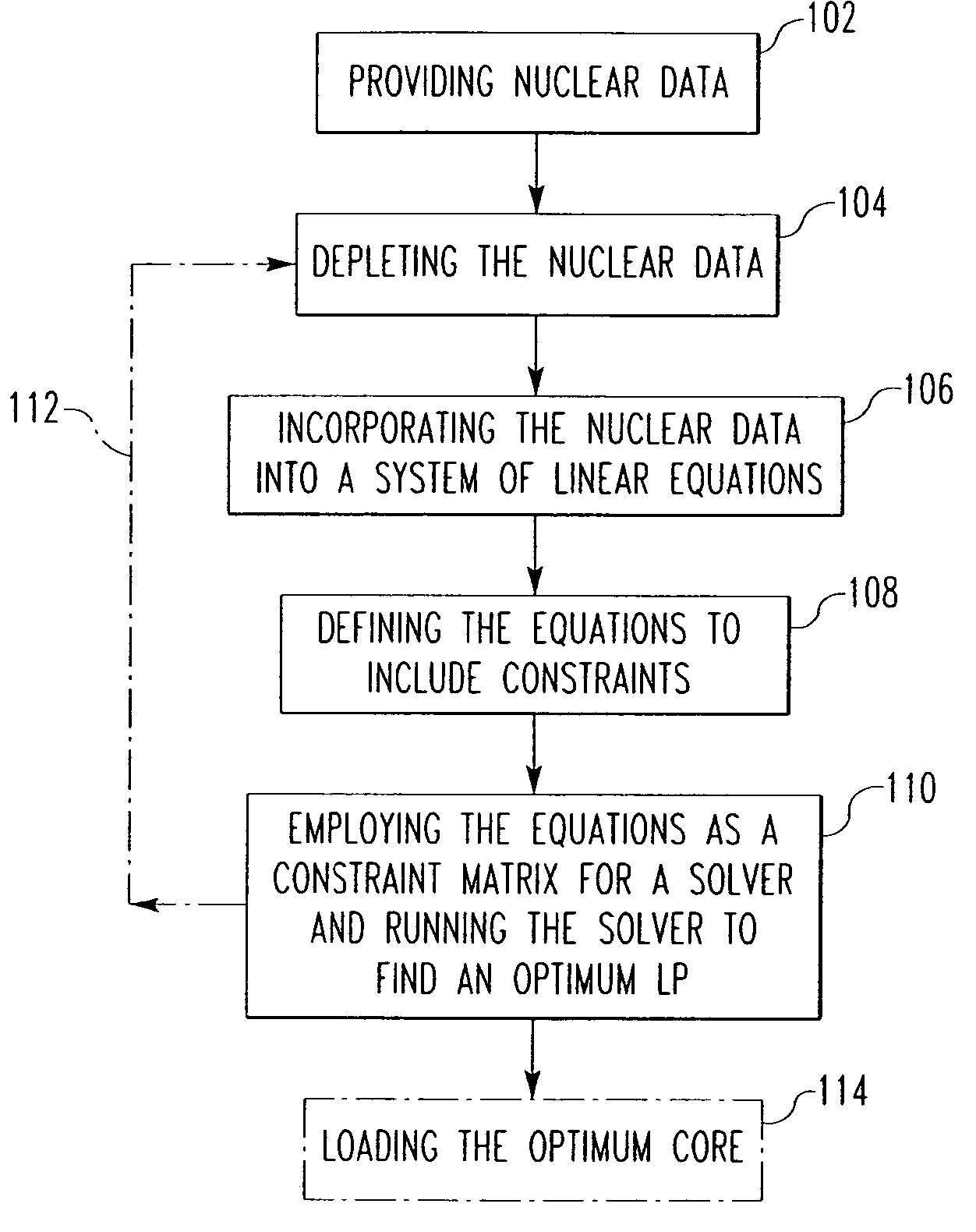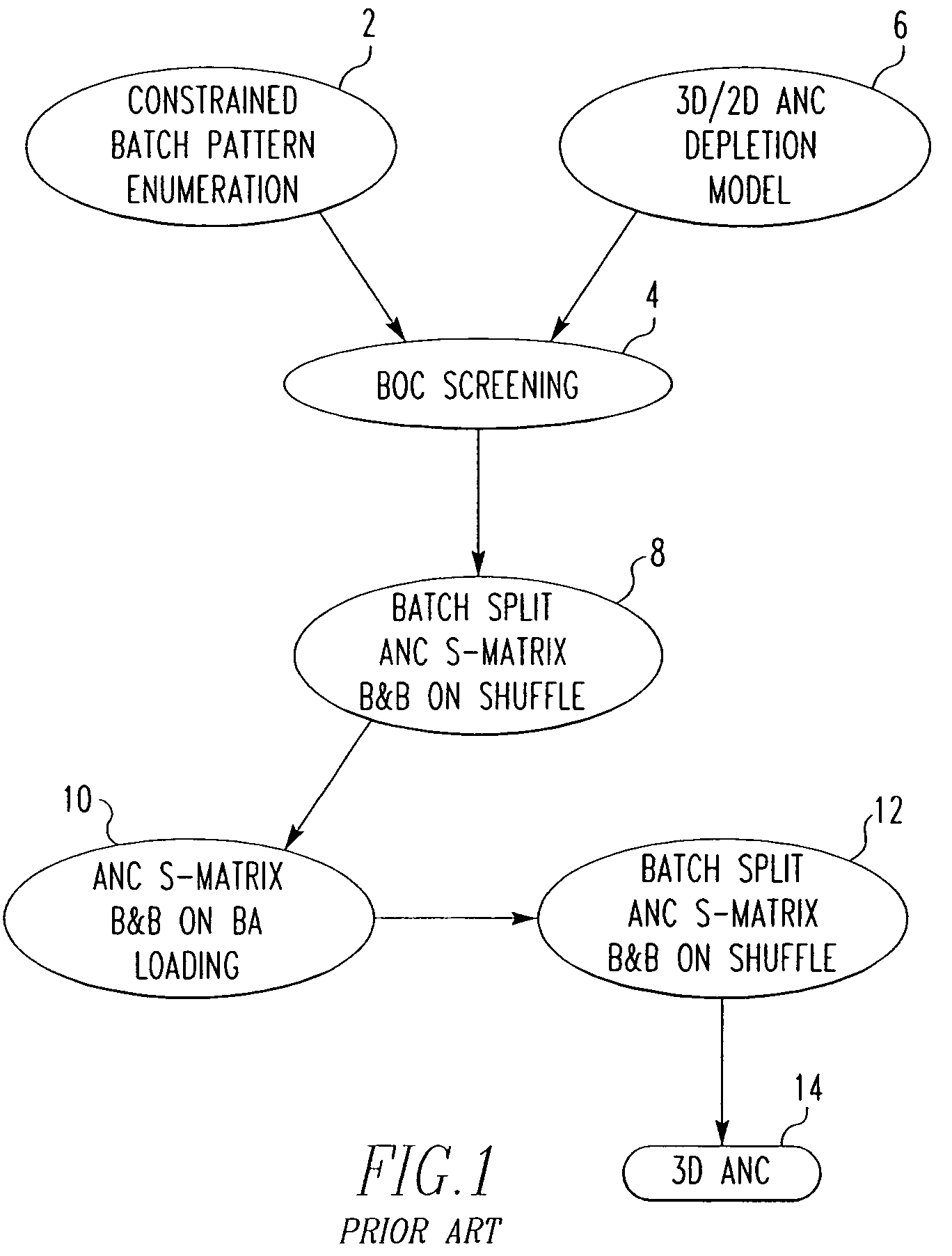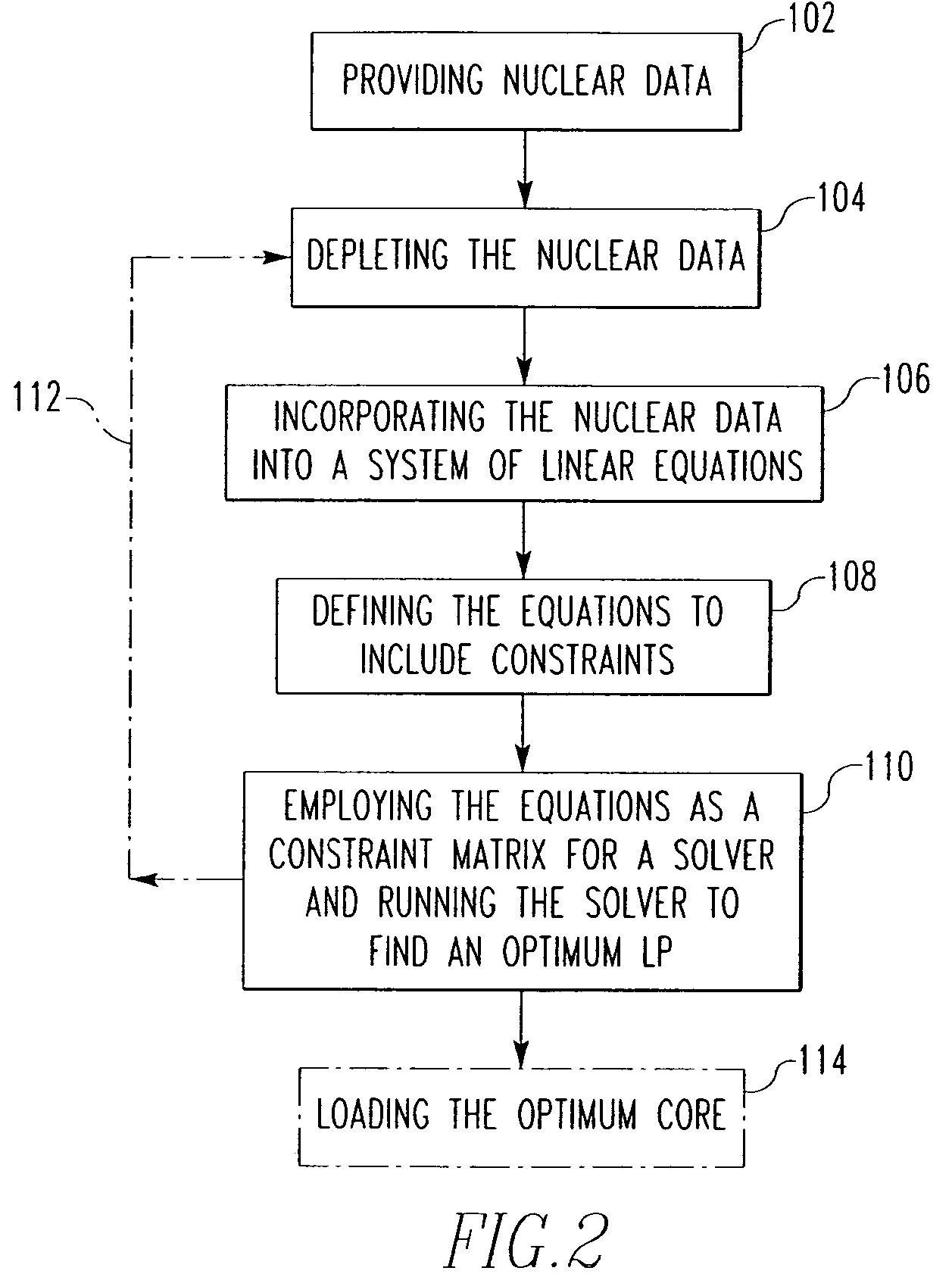Method and algorithm for searching and optimizing nuclear reactor core loading patterns
a technology for nuclear reactors and loading patterns, applied in the direction of nuclear elements, instruments, greenhouse gas reduction, etc., can solve the problems of inability to individually evaluate each possible loading pattern discretely, and neither of these techniques assure the establishment of optimal loading patterns
- Summary
- Abstract
- Description
- Claims
- Application Information
AI Technical Summary
Benefits of technology
Problems solved by technology
Method used
Image
Examples
example
[0039]The expressions of the exemplary algorithm follow. For the flux solution, the neutron balance equation for each node is:
[0040]∑j∈adjacentJij1+ϕi1∑R1(k∞i-1)=0∀i(Expression1)
where the k-infinity for the ith node is:
[0041]kxi=[υ1∑1f∑R1+υ2∑f2∑R1∑s12∑a2+D1B22|ref-1]i(Expression2)
and the currents between the ith node and the j neighbors of i are:
[0042]Jij=-∑j∈adjacent(Disϕ_i-DjAϕ_j)(Expression3)
where:[0043]S stands for “self” and DS depends on the characteristics of the ith node,[0044]A stands for “adjacent” and DA depends on the characteristics of the adjacent nodes,[0045]υm is the neutrons per fission in the nth group,[0046]Σfm is the macroscopic fission cross section for the nth group,[0047]ΣR1 is the macroscopic removal cross section for the fast group,[0048]Σa2 is the macroscopic absorption cross section for the thermal group,[0049]D2 is the diffusion coefficient for the thermal group,[0050]B2 is the buckling for the thermal group,[0051]i and j are radial in...
PUM
 Login to View More
Login to View More Abstract
Description
Claims
Application Information
 Login to View More
Login to View More - R&D
- Intellectual Property
- Life Sciences
- Materials
- Tech Scout
- Unparalleled Data Quality
- Higher Quality Content
- 60% Fewer Hallucinations
Browse by: Latest US Patents, China's latest patents, Technical Efficacy Thesaurus, Application Domain, Technology Topic, Popular Technical Reports.
© 2025 PatSnap. All rights reserved.Legal|Privacy policy|Modern Slavery Act Transparency Statement|Sitemap|About US| Contact US: help@patsnap.com



